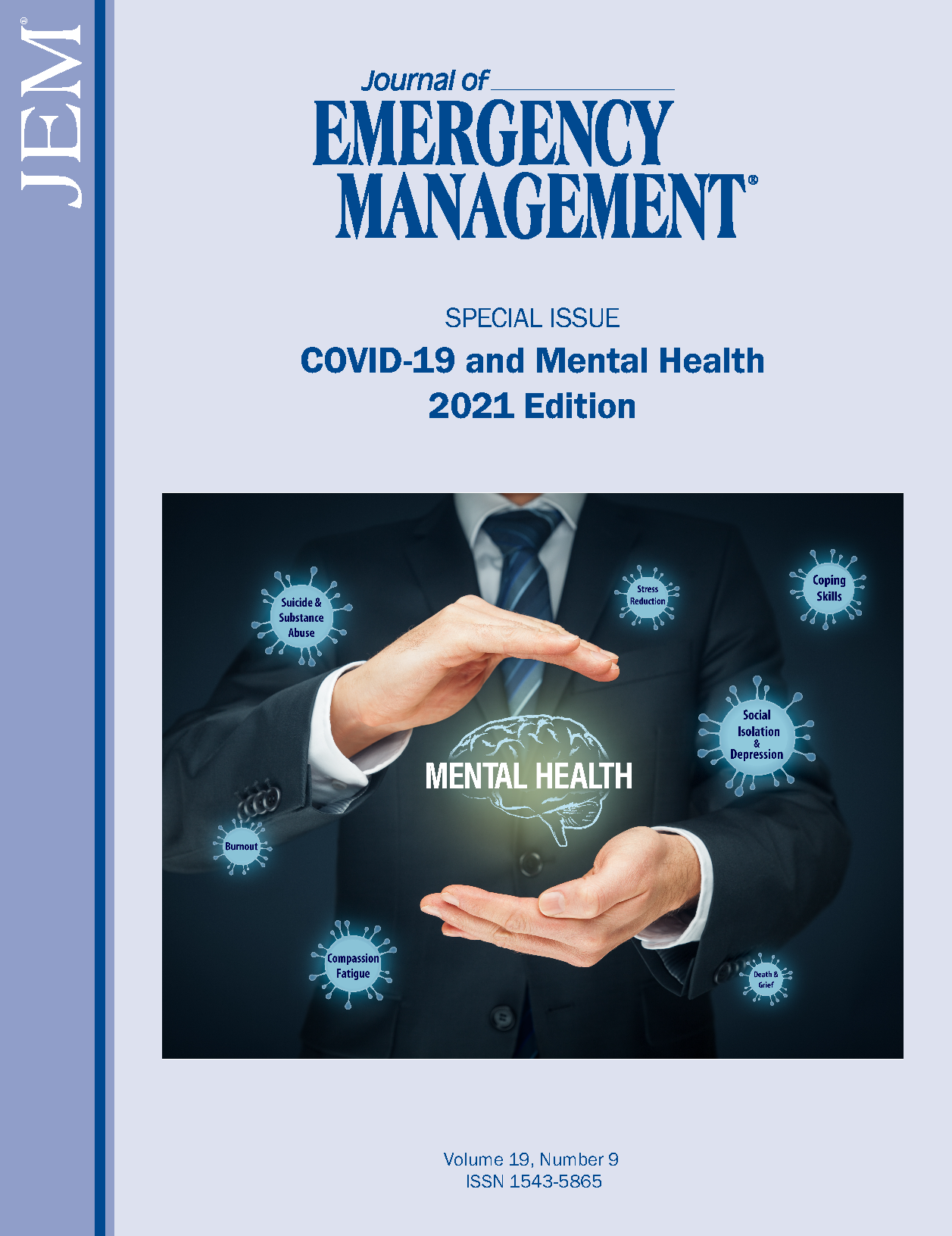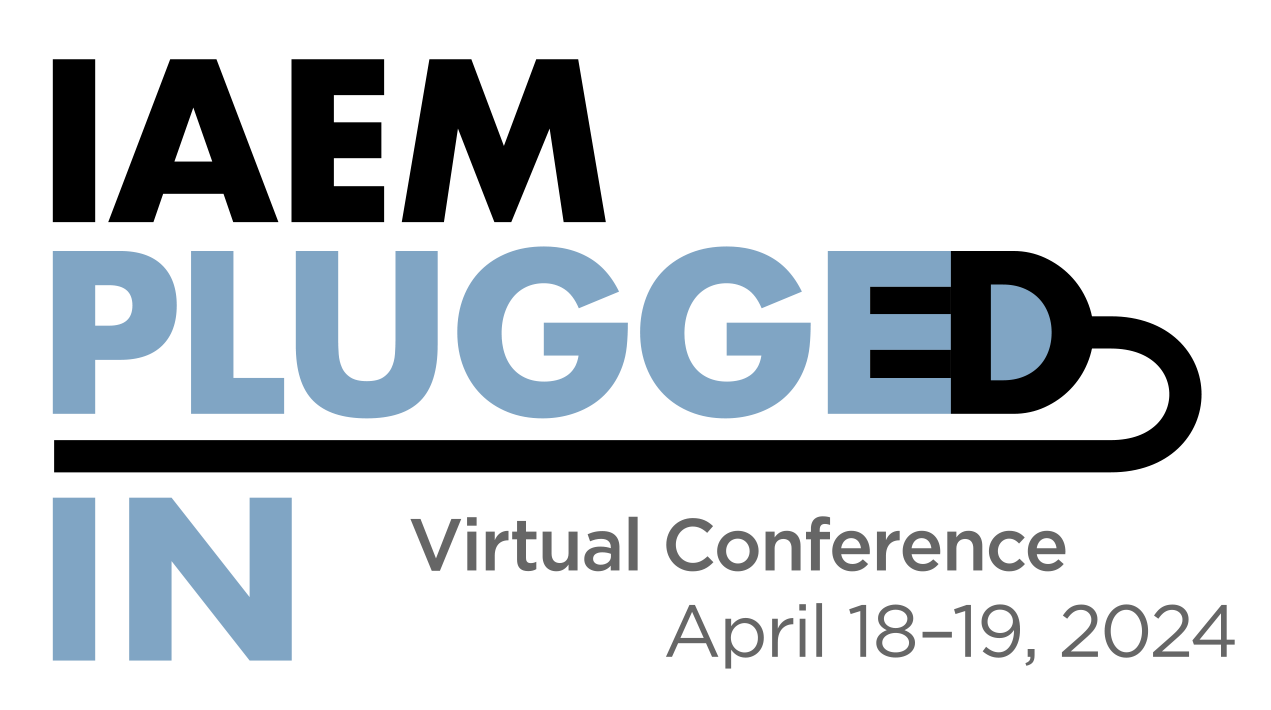Psychosocial resilience: Challenges and facilitators for nurses from four New York City hospitals responding to the first wave of COVID-19, spring 2020: Qualitative findings from a mixed-methods study
DOI:
https://doi.org/10.5055/jem.0619Keywords:
mental health, COVID-19, nursesAbstract
Frontline workers are at great risk of significant mental health challenges as a result of responding to large-scale disasters. We conducted a mixed-methods study to identify the challenges experienced and the resources nurses drew upon during this first phase of the COVID-19 pandemic in the spring of 2020 in New York City (NYC). The qualitative data presented here are on 591 nurse participants in the qualitative arm of the study. Responses to qualitative questions were reviewed by one of the investigators to identify emerging themes. Two qualitative researchers used both deductive (guided by the Resilience Theory) and inductive approaches to analysis. Challenges identified by nurses included concerns about well-being and health risk; mental health symptoms such as depression, anxiety, and difficulty sleeping; fears about the ability to care for patients with severe life-threatening symptoms; and home-work challenges such as risk to family and friends; and lack of availability of institutional resources, particularly, personal protective equipment (PPE). Facilitators of resilience were institutional resources and support available; social support from coworkers, friends, and family; and positive professional identity. Recommendations for promoting resilience in future disaster/pandemic responses included clarification of disaster-related professional responsibilities, integration of disaster preparedness into professional education, and engagement of nurses/frontline workers in preparation planning for disasters.References
Ghebreyesus TA: WHO Director-General’s opening remarks. March 11, 2020. Available at https://www.who.int/director-general/speeches/detail/who-director-general-s-opening-remarks-at-the-media-briefing-on-covid-19---11-march-2020.
Goldstein J, McKinley J: Coronavirus in NY: Manhattan Woman Is First Confirmed Case in State. NY Times, March 1, 2020. Available at https://www.nytimes.com/2020/03/01/nyregion/new-york-coronvirus-confirmed.html.
Thompson CN, Baumgartner J, Pichardo C, et al.: COVID-19 Outbreak—New York City, February 29–June 1, 2020. MMWR Morb Mortal Wkly Rep. 2020; 69: 1725–1729. DOI: http://dx.doi.org/10.15585/mmwr.mm6946a2. Available at https://www.cdc.gov/mmwr/volumes/69/wr/mm6946a2.htm.
Healthline.com: NYC COVID-19 death rate during peak rivaled 1918 flu. Available at https://www.healthline.com/health-news/nyc-covid-19-deaths-during-peak-rivaled-1918-flu-fatalities.
McCoy K, Wagner D: Which coronavirus patients will get life-saving ventilators? Guidelines show how hospitals in NYC, US will decide. USA Today. April 4, 2020. Available at https://www.usatoday.com/story/news/2020/04/04/coronavirus-ventilator-shortages-may-force-tough-ethical-questions-nyc-hospitals/5108498002/.
Benedek DM, Fullerton C, Ursan RJ: First responders: Mental health consequences of natural and human-made disasters for public health and public safety workers. Annu Rev of Public Health. 2007; 28: 55-68. DOI: 10.1146/annurev.publhealth.28.021406.144037.
Plano Clark VL: The adoption and practice of mixed methods: US trends in federally funded health-related research. Qualitative Inquiry. 2010; 17(6): 428-440. DOI: 10.1177/1077800410364609.
Braun V, Clark V: Using thematic analysis in psychology. Qualitat Res Psychol. 2010; 3: 77-101. DOI:10.1191/1478088706qp063oa.
Luthar SS, Cicchetti D, Becker B: The construct of resilience: A critical evaluation and guidelines for future work. Child Dev. 2000; 71(3): 543-562. DOI:10.1111/1467-8624.00164.
Fergus S, Zimmerman MA: Adolescent resilience: A framework for understanding healthy development in the face of risk. Annu Rev Public Health. 2005; 26(1): 399-419. DOI:10.1146/annurev. publhealth.26.021304.144357.
Dillman D, Smyth J, Leah C: Internet, Phone, and Mixed Mode Surveys. Wiley: Hoboken NJ. 2014.
Kovner CT, Raveis VH, VanDevanter N, et al: The psychosocial impact on frontline nurses of caring for patients with COVID- 19 during the first wave of the pandemic in New York City. Nursing Outlook. 2021; S0029-6554(21)00093-2. DOI:10.1016/j.outlook.2021.03.019. Online ahead of print.
US Department of Health and Human Services: NSS: National Sample Survey of Registered Nurses. Hoboken NJ. 2019.
Garrett L: The coming plague. New York, McMillian. 1994.
Smith KF, Goldberg M, Rosenthal S, et al: Global rise in human infectious disease outbreaks. Journal of the Royal Society. 2014; 11: 20140950. DOI:10.1098/rsif.2014.0950.
National Academies of Sciences, Engineering, and Medicine: The Future of Nursing 2020-2030: Charting a Path to Achieve Health Equity. Washington, DC: The National Academies Press, 2021. Available at DOI:10.17226/25982.
Madara J, Miyamoto, Farley JE, et al: Clinicians and professional societies COVID-19 impact assessment: Lessons learned and compelling needs. National Academy of Medicine. Discussion Paper. 2021. Available at https://nam.edu/clinicians-and-professional-societies-covid-19-impact-assessment-lessons-learned-and-compelling-needs/.
Downloads
How to Cite
Issue
Section
License
Copyright 2007-2023, Weston Medical Publishing, LLC and Journal of Emergency Management. All Rights Reserved








